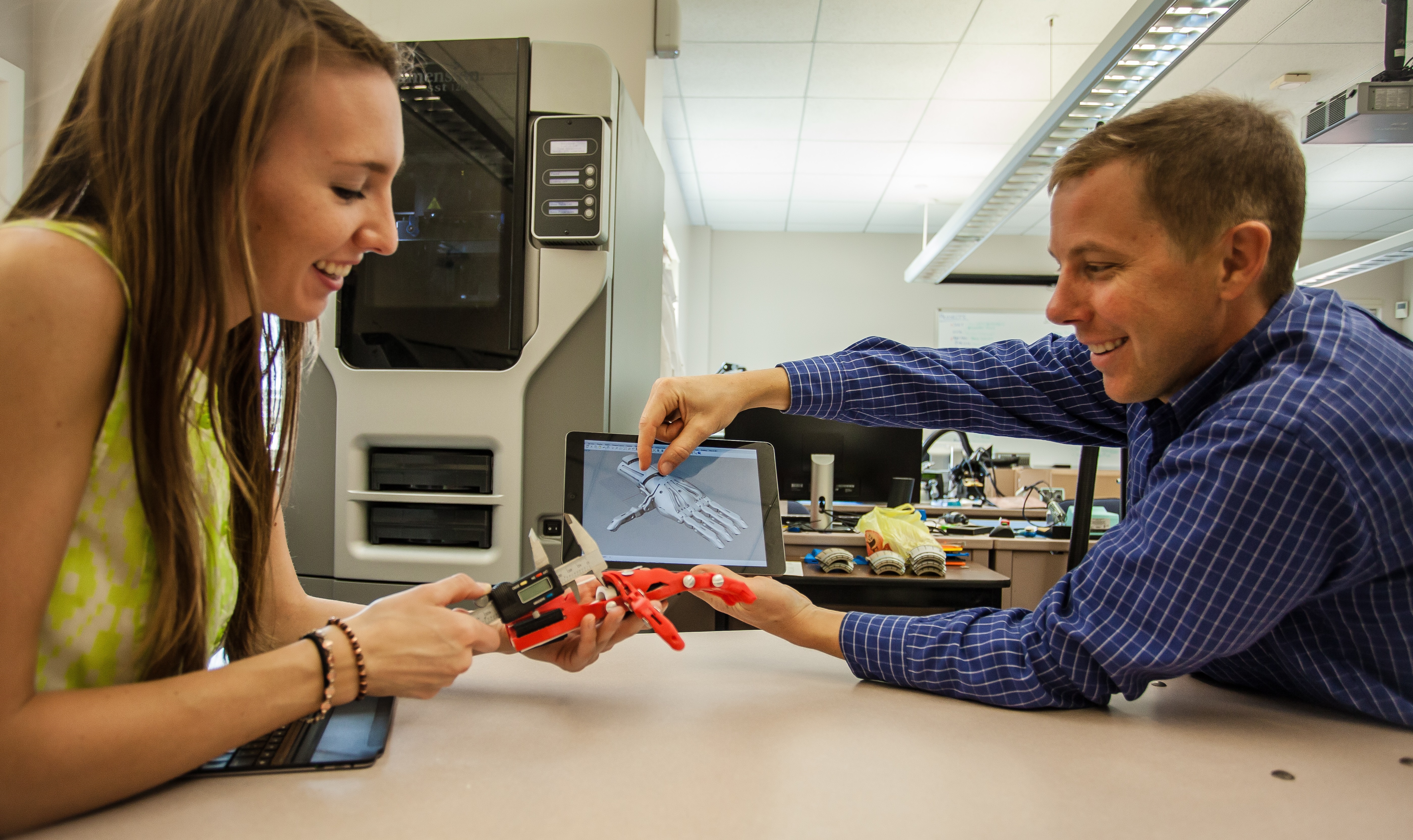 As the Mid-Hudson Valley focuses on addressing the critical shortage of engineers needed to serve advanced manufacturing activities in the region, SUNY New Paltz announces a new bachelor’s degree in mechanical engineering.
As the Mid-Hudson Valley focuses on addressing the critical shortage of engineers needed to serve advanced manufacturing activities in the region, SUNY New Paltz announces a new bachelor’s degree in mechanical engineering.
Authorized by the New York State Education Department this month, the new major capitalizes on the College’s long-standing ABET-accredited programs in electrical and computer engineering and complements New Paltz’s rapidly evolving 3D printing initiative that supports additive manufacturing.
“The College is excited to bring mechanical engineering to the region,” said SUNY New Paltz President Donald P. Christian. “This program builds on our long record of success in educating engineers, many of whom are employed by local companies. It also supports the regional economy by helping to address the shortage of mechanical engineers in the Mid-Hudson Valley.”
According to Dan Freedman, dean of the School of Science and Engineering and director of the Hudson Valley Advanced Manufacturing Center at SUNY New Paltz (HVAMC), “The objective of this major is to produce graduates who are well-rounded engineers with strong technical skills along with the broad knowledge, creative problem-solving, and communication abilities that characterize the New Paltz educational tradition.”
Freedman noted that the number of students majoring in Science, Technology, Engineering, and Math (STEM) fields has nearly doubled in the last seven years, with the largest increases seen in the engineering program.
“As the only option for engineering in the region, public or private, SUNY New Paltz is stepping up to fill a gap by offering a rich range of academic choices that will result in solid jobs for our graduates in fields as diverse as aerospace, biomedical, energy production, prosthetics development, automotive, and building engineering,” said Freedman.
This announcement follows the award of a $10 million NYSUNY 2020 grant to establish an Engineering Innovation Hub at the College. The award will help provide the resources necessary to support the new major and the construction of a 20,000-square-foot building located in close proximity to the Resnick Engineering Hall on the New Paltz campus. The Hub will house state-of-the-art equipment to support the engineering program’s faculty and students as well as the work of companies partnering with the College through its 3D printing initiative and START-UP NY.
The project promises to generate $75 million in new economic impact, create more than 195 full-time jobs, and graduate 300 much-needed mechanical engineers over a 10-year period.
“To remain truly competitive in today’s global marketplace, regional economies must continually produce a highly-educated workforce,” said Laurence Gottlieb, president & CEO of Hudson Valley Economic Development Corporation. “The Engineering Innovation Hub at SUNY New Paltz will become that engine for business growth, by developing the next generation of workers who will literally design, develop and build tomorrow’s economy. It’s simply a game-changer for the Hudson Valley.”
About New Paltz’s 3D Printing Initiative
Since launching the Hudson Valley Advanced Manufacturing Center in spring 2013, the College’s effort to fuse learning and manufacturing, science and the arts has continued to gain momentum. In February 2014, the College partnered with Brooklyn, N.Y. – based MakerBot, the leading manufacturer of desktop 3D printers, to open the nation’s first MakerBot Innovation Center at SUNY New Paltz. The 3D Printing Initiative received additional funding in fall 2014, including a $10 million NYSUNY 2020 Challenge Grant to help establish an Engineering Innovation Hub and $850,000 in capital funding for a new 3D Printing Laboratory. In December 2013, the Mid-Hudson Regional Economic Development Council and Governor Andrew Cuomo awarded the College $1M in state economic development funds. Currently, the HVAMC is providing digital design and fabrication expertise to about 50 businesses and entrepreneurs throughout the region. The Center also engages the local community and educates the public about the possibilities of 3D printing. Workshops for K-12 educators have attracted a wide variety of teachers, from art to science, who have an interest in digital design and fabrication and are utilizing these new technologies in their classrooms.

